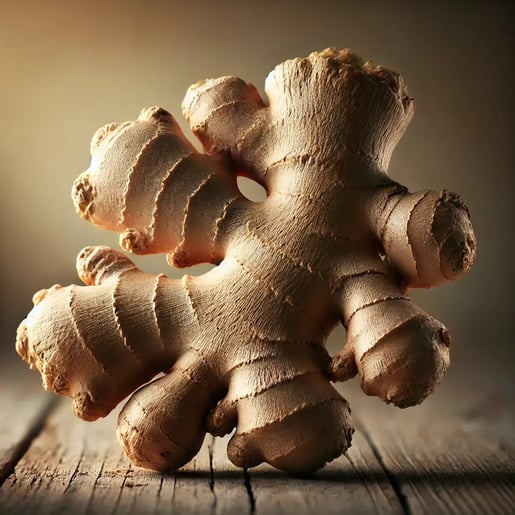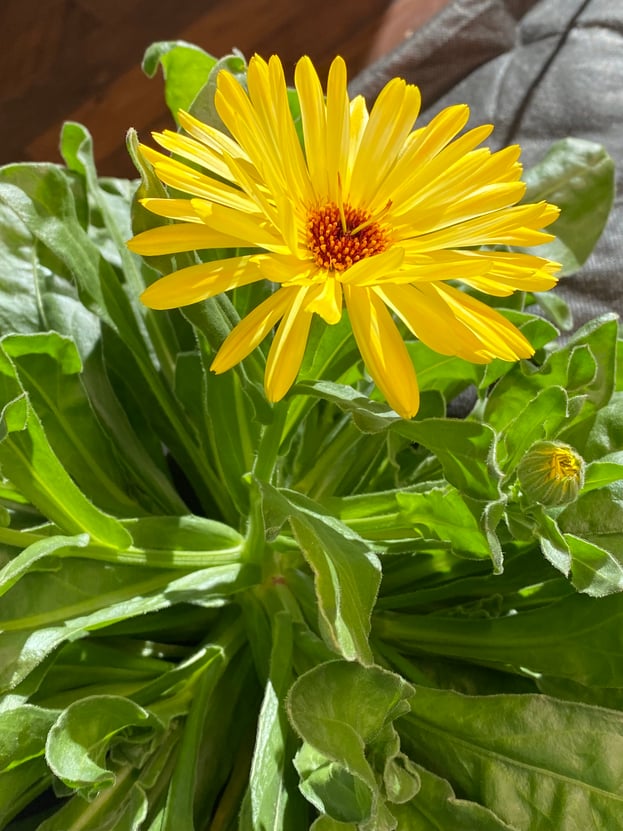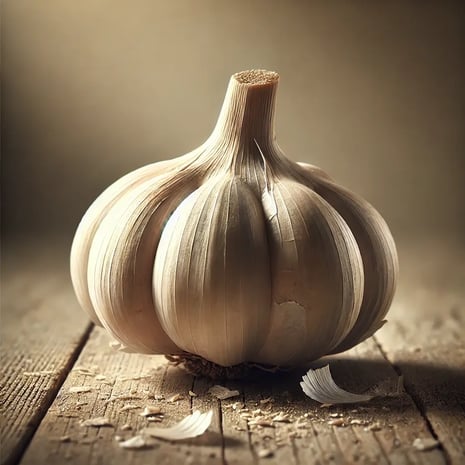Boost Your Immunity with These Herbs for the Cold and Flu Season
The cold and flu season is still here and our immune systems still face the challenges of trying to fight off these viruses. This is typical during the mid-winter months and early Spring. While practicing good hygiene and maintaining a healthy diet are essential, Nature offers a treasure trove of remedies to support and strengthen our immunity. Herbs, with their time-honored healing properties, can play a pivotal role in keeping us resilient during this winter season and even spring! Let’s explore some of the best immunity-boosting herbs and remedies you can incorporate into your routine. These are my FAVORITE and most potent immune-boosting remedies (down below).

1. Fire Cider
Fire cider is a potent herbal tonic known for its immune-boosting and warming properties. This zesty blend typically includes apple cider vinegar infused with fresh garlic, ginger, horseradish, onions, cayenne pepper, and sometimes turmeric and honey...though you can be quite creative with your own blend of Fire Cider! Fire cider stimulates circulation, supports digestion, and fights off early signs of colds or flu. A tablespoon or two daily can help fortify your immune defenses. Check out Rosemary Gladstar's book, "Fire Cider!" to make your own Fire Cider at home!

2. Elderberry Syrup
Elderberries (Sambucus nigra) have long been revered for their antiviral properties and ability to reduce the duration of colds and flu. Elderberry syrup is not only delicious but also rich in antioxidants and vitamin C, making it a must-have during the winter season and the transitional seasons of fall and spring. Take it daily as a preventative measure or increase the dosage if you feel symptoms coming on. Down below is a picture of Elderberry Syrup I made a few years back. I make this each year.

3. Ginger Tea
Ginger root is a warming herb that supports the immune system, aids digestion, and reduces inflammation. Its antiviral and antibacterial properties make it an excellent ally for fighting infections. A cup of freshly brewed ginger tea with honey and lemon can soothe a sore throat, get your blood flowing, and provide comfort during chilly days. It's uplifting as well, and I notice it stimulates my blood circulation and heats up my body on cold days. Make the hot tea in the morning and sip throughout the morning to help you get motivated for the day!

4. Lomatium Dissectum Tincture and Throat Spray
Lomatium dissectum is a powerful antiviral herb that has been used traditionally for respiratory infections and immune support. A tincture of Lomatium can be taken internally to bolster immunity, while a throat spray can provide targeted relief for sore throats and irritation. It’s particularly useful during the early stages of illness. I really enjoy the LDM-100 tincture from Barlow Herbals. I've even used this tincture mixed with water and gargled it to help ease my sore throat. You have to use this herb with care because 1 out of 5 people will have a skin reaction that ends up being very uncomfortable. Please use care and ask your local Herbalist what would work best for your specific needs.
5. Astragalus
Astragalus root is a staple in Traditional Chinese Medicine, celebrated for its adaptogenic and immune-modulating properties. It’s best used as a preventative measure, strengthening the immune system over time. Add dried astragalus root to soups and broths or take it in capsule or tincture form. Do not take astragalus when you have an active infection. Speak with your Herbalist on how to incorporate this herb into your daily routine for preventative health care.
6. Medicinal Mushrooms
Medicinal mushrooms are among the most powerful natural immune boosters. A blend of mushrooms like reishi, maitake, shiitake, cordyceps, agaricus, turkey tail, and lion’s mane offers a synergistic approach to immunity. These mushrooms are rich in beta-glucans, which enhance immune function and overall health. You can incorporate them into your diet through teas, tinctures, powders, or capsules. I have so much reverence for medicinal mushrooms because when I was sick years ago and was suffering from the effects of a pituitary tumor, gastritis, and esophagitis, I started using medicinal mushrooms and noticed a huge improvement in my personal wellness and health. Nowadays (just 10 years after I took them for my ailments) there is much more research and information on these mushrooms that have helped compliment allopathic medicine and even helped to reduce side effects of allopathic treatments/medicine. Please do your research and speak with your doctor and herbalist if you are interested in taking medicinal mushrooms, because they are not without risks. I recall one of the cancer patients I took care of years ago tell me that he was taking very large doses medicinal mushrooms, along with once-a-month chemotherapy treatments. Because of this, his platelet count was dramatically and negatively affected because medicinal mushrooms AND chemotherapy are known to do this. So it's important to take mushroom supplements with care, and work with your healthcare team to make sure what you're doing is not going to negatively affect your health.
%20Small.jpeg?width=519&height=389&name=IMG_9938%20(3)%20Small.jpeg)
7. Ginseng
Ginseng (Panax ginseng or Panax quinquefolius) is a renowned adaptogen that supports immune function, energy levels, and stress resilience. It’s particularly beneficial during periods of fatigue or recovery from illness. A cup of ginseng tea or a daily tincture can work wonders for maintaining vitality in the winter. My favorite book on the Ginsengs is the one depicted below called "The Healing Power of Ginseng." Check it out!
8. Echinacea
Echinacea is a go-to herb for stimulating the immune system and warding off colds and flu. It’s most effective when taken at the first sign of illness. Echinacea tinctures, teas, and capsules are widely available and easy to incorporate into your routine. It's a pretty potent tincture and tea. I like to use capsules (my personal opinion!).
9. Oregano
Oregano is more than just a culinary herb—it’s a potent antimicrobial agent. Oregano oil, in particular, is highly concentrated and effective against bacteria, viruses, and fungi. Use it sparingly by diluting a drop or two in water or a carrier oil. IT IS POTENT. AND I MEAN IT!
10. Garlic
Garlic is a natural antibiotic and immune booster with powerful antiviral and antibacterial properties. Raw garlic is especially effective, so consider adding minced garlic to your meals, or take it as a supplement to strengthen your immune defenses. My favorite way to use garlic is just use fresh garlic in the foods that I make daily. It's a great preventative herb and is one of those go-to herbs that is easy to find year-round, and can be dried and used that way as well. I once juiced a whole head of fresh garlic and drank it... I don't recommend doing that! It made my stomach cramp and upset my stomach. But the purge was well worth it! IF you end up juicing garlic, dilute it with water and use sparingly.
11. Ashwagandha
Ashwagandha is a revered adaptogen that helps the body manage stress and supports overall immunity. Chronic stress can weaken the immune system, so incorporating ashwagandha into your routine can provide a dual benefit of stress relief and enhanced resilience. This is one of my go-to herbs as well. I use this one daily instead of drinking coffee or tea. It helps to restore the adrenal glands so your body is more resilient to stress. So if you're suffering from a condition that causes adrenal fatigue (chronic fatigue syndrome, fibromyalgia, MS, extreme burnout, cancer, etc), you may benefit from this herb!
12. Turmeric
Turmeric is a potent anti-inflammatory and antioxidant herb. Its active compound, curcumin, supports immune function and reduces inflammation. Pair turmeric with black pepper to enhance its absorption and enjoy it in golden milk, teas, or as a supplement. My favorite is golden milk... adding some ginger to it, black pepper, and cinnamon! I like using coconut milk as a milk alternative. It's soothing if you drink it in the evening, and with the warming herbs, it can give you a small boost of energy and creativity before it eventually relaxes you enough to ease into the evening routine and eventually bed!
13. Tulsi (Holy Basil)
Tulsi, or Holy Basil, is an adaptogenic herb with a calming effect on the body and mind. It supports respiratory health, immunity, and stress reduction. A warm cup of tulsi tea can be both soothing and fortifying during the colder months. The tea is very tasty, too! Very pleasing to the palate!
14. Calendula
Calendula, with its gentle yet powerful properties, supports lymphatic health and helps the body’s natural detoxification processes. Use it in teas or tinctures to enhance immunity and promote overall well-being. When I was going through herbalism school, I still remember the teachers telling us that Calendula is used for gut health "from mouth to rectum." It is very detoxifying. I enjoy the look of the plant flowers so each winter, I grow Calendula indoors so that I have a beautiful yellow flowers to look at in the darkest of days. It instantly improves my mood, which in return helps improve the immune system. Did you know that increased mood = increased immune system?! Now you do!
Additional Tips for Staying Healthy This Winter
-
Hydration: Staying hydrated is essential for keeping mucous membranes moist and functioning as the first line of defense against pathogens.
-
Sleep: Prioritize restorative sleep to allow your body to repair and strengthen its defenses.
-
Diet: Incorporate nutrient-dense foods, such as leafy greens, citrus fruits, and fermented foods, to nourish your immune system. (see image of the plate with food on it below)
-
Movement: Gentle exercises, such as yoga or brisk walking, can enhance circulation and lymphatic flow.
-
Stress Management: Chronic stress can compromise immunity, so practices like meditation, deep breathing, and journaling can be beneficial.
How to Incorporate These Herbs into Your Routine
-
Herbal Teas: Many of these herbs, such as ginger, tulsi, and calendula, can be steeped into teas for a comforting and immune-boosting drink.
-
Tinctures: Concentrated herbal extracts, like Lomatium, echinacea, or astragalus tinctures, are easy to use and highly effective.
-
Infused Foods: Add garlic, turmeric, and medicinal mushrooms to soups, broths, and sautés for both flavor and health benefits. (see below image)
-
Syrups: Elderberry syrup is a delicious way to support immunity, especially for children or those who prefer sweet remedies.
-
Topicals: Calendula can also be used in salves or balms to support skin health, which is another barrier to infections.
Nature offers an abundance of tools to support our immune systems during the cold and flu season. From fiery tonics like fire cider to soothing teas made with tulsi and ginger, these herbs are not only effective but also deeply nourishing. By incorporating these natural remedies into your daily routine, you can boost your immunity and stay resilient through the mid-winter months.
If you’re curious about which herbs might work best for you, or you’d like personalized guidance, Brahmaloka Healing Arts offers consultations to help you integrate herbal remedies into your wellness journey. Stay healthy and embrace the season with the wisdom of nature by your side! Thank you for reading!
With Gratitude,
Lauren @ Brahmaloka Healing Arts LLC
XOXO
You may also like
These related articles



